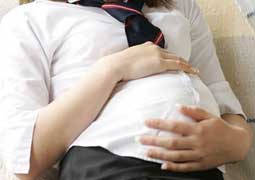
The Commission for Gender Equality (CGE) presented the results of its comprehensive study on school dropout among adolescent girls during pregnancy and in the postpartum period to the Portfolio Committee on Women, Youth, and Persons with Disabilities.
The study, conducted in KwaZulu-Natal, Limpopo and Eastern Cape, investigated the factors influencing the decision of pregnant learners and adolescent mothers not to return to school after the birth of their children. The study also made policy recommendations, in line with the CGE’s constitutional mandate.
The study used qualitative research to understand the social, cultural, legislative and economic factors influencing adolescent girls’ school attendance during pregnancy and after delivery. The research methodology included in-depth individual, face-to-face interviews with adolescent girls and other key informants, focussing on the factors leading to adolescent pregnancy and withdrawal from school.
Briefing the committee, Ms Naledi Selebano from the CGE said the study revealed a multitude of factors contributing to adolescent pregnancy, including limited knowledge about sexual biology and access to contraception services, fear of stigmatisation, lack of parental involvement, various socio-economic factors, statutory rape, older sex partners, teacher–student sexual relations, and substance abuse. Additionally, individual, household and school-related factors were identified as barriers to the retention of pregnant learners and adolescent mothers in school.
The CGE made several recommendations, emphasising the need for comprehensive sexual and reproductive health education, financial support for pregnant learners, addressing stigma in the school environment, and creating an enabling policy environment to retain pregnant learners and adolescent mothers in school. The CGE also recommended the implementation of advocacy and awareness-raising initiatives to support and strengthen the application of the National Policy on the Prevention and Management of Learner Pregnancy across all provinces, accompanied by programmes that provide academic support for pregnant learners and adolescent mothers.
The CGE concluded that parental involvement and support are key in the prevention of adolescent pregnancy and the reintegration of pregnant girls and young mothers back into school education. It also highlighted the need for coherent and consistent practices in the management of learner pregnancies across all schools, as well as efforts to provide training, capacity building and policy awareness by the Department of Basic Education to address inconsistencies in the application of the policy among provinces.
Regarding the CGE’s engagement with other government departments, committee chairperson Ms Nonhlanhla Ncube-Ndaba expressed concern about the lack of cooperation between departments. She questioned whether the CGE shares its findings and recommendations with stakeholders and how they implement these recommendations.
She also highlighted the poor performance of the Department of Women, Youth and Persons with Disabilities in the implementation of the National Strategy for the Prevention of Adolescent Pregnancy (NSP). The committee suggested that it schedules a meeting where the committee plans to hold the department accountable for its progress in implementing the NSP and to raise issues contained in the CGE’s report.
The committee stressed the importance of cooperation from other government departments in addressing the issue of adolescent pregnancy and its impact on education.
Yoliswa Landu
6 March 2023

